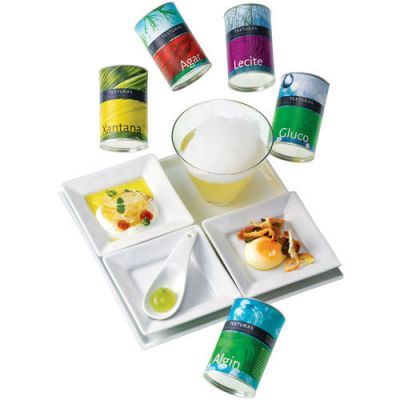Food politics: one country wages war on molecular gastronomy

According to Italian food blog Caput Mundi Cibus, Francesca Martini, the undersecretary of the Italian Minister of Health, announced a new law that bans the use of the chemicals necessary for molecular gastronomy, including liquid nitrogen in all restaurants and prepared foods, excluding packaged foods.
The ban is set to expire on December 31, 2010 and Chef John, Caput Mundi Cibus' blogger and Swedish chef living in Rome, had this to say about the "bogus" law, "the whole thing feels like an outrageous publicity stunt from the government in a country where tradition reigns supreme. A way to regain people's (and voters') confidence promising them to protect Italian products and have restaurants serve fresh and healthy food, pointing out the ones that embrace the latest techniques and new ingredients as the bad guys."
On December 22, 2009, Martini explained to Striscia, an Italian news program, that the ban is in place to protect the health and safety of its citizens. Most of the food chemicals banned can be found in the line of "Texturas" products from Ferran Adrià, renowned molecular gastronomist and to some the "world's greatest chef." Adrià, who announced that his famous restaurant El Bulli will close in 2012, is no stranger to controversy over the health of his food. Jörg Zipprick, a German food critic and author of The Unappetizing Underside of Molecular Cooking, expressed concern about Adria's creations, "these colorants, gelling agents, emulsifiers, acidifiers and taste enhancers that Adria has introduced massively into his dishes to obtain extraordinary textures, tastes and sensations do not have a neutral impact on health" and may even pose a risk for intestinal cancer.
Avant-garde foodies and chefs may be disappointed but in Italy tradition and fresh whole ingredients trumps foams and gelees with the Slow Food movement and export of Italian agricultural products. It was recently announced that Eatly Turin, artisanal and slow food marketplace, will be expanding to New York.
It will be interesting to see if any other nations follow Italy's lead and what will become of the food law and politics in Italy on January 1, 2011.
Blog: http://www.caputmundicibus.com/
On Jörg Zipprick: http://www.naturalnews.com/027485_cuisine_food_additives.html
RistoTV, a YouTube channel devoted to Italian gastronomy, restaurants and tourism, airs, in Italian, Martini's announcement to Strisicia: http://www.youtube.com/watch?v=2cy6HeX0ZIA
Official law (Italian): http://www.gazzettaufficiale.it/guridb/dispatcher?service=1&datagu=2010-02-18&task=dettaglio&numgu=40&redaz=10A02089&tmstp=1266745810060
Join our commenting forum
Join thought-provoking conversations, follow other Independent readers and see their replies
Comments
Bookmark popover
Removed from bookmarks